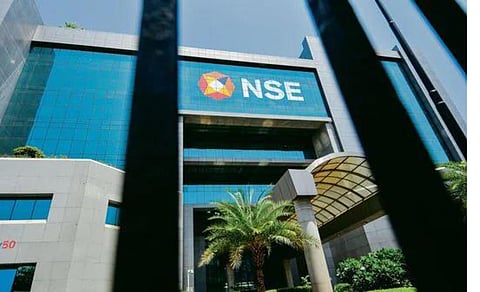

The National Stock Exchange (NSE) has announced a fresh set of regulations for small and medium enterprises (SMEs) that plan to migrate from its Emerge platform to the mainboard. These rules, outlined in a circular issued by the exchange, will kick in from May 1.
The decision appears to follow closely on the heels of market watchdog Sebi’s findings of financial irregularities at Gensol Engineering – a company that began its journey on the SME platform before making its way to the mainboard.
Under the revised norms, NSE has raised the threshold for SMEs seeking an upgrade. To begin with, the average market capitalisation of the company must not be less than ₹100 crore at the time of migration.
In addition, there’s a new condition on promoter shareholding. When a company applies for migration, its promoters must hold at least 50% of the shares that they originally held at the time of listing on the SME platform.
This move, as many in the market speculate, is part of an ongoing effort to clean up the ecosystem and prevent misuse of the SME route.
Last year, Sebi tightened rules around SME listings after a string of concerning practices surfaced. These included fund diversions, suspicious financials, and even fake transactions. The revised framework touched every aspect — from listing criteria to disclosures and governance. Now, NSE’s new rules seem to take that a step further, making the transition to the mainboard more rigorous.
Stock exchanges in India operate separate platforms for SMEs. While both BSE and NSE run SME segments, NSE’s Emerge has seen a notable number of companies move on to the mainboard — 142, to be precise, as per the latest NSE Market Pulse data.
Since financial year 2012, a total of 605 SMEs have raised ₹16,587 crore through listings on NSE’s SME platform.
In February 2025 alone, 11 new SME listings collectively raised capital, with retail individual investors (RIIs) picking up ₹241 crore — that’s roughly 40% of the total amount raised that month. January wasn’t far off, with RIIs contributing 39%.
It’s not just about numbers. NSE has also set conditions related to the company’s track record. If an SME wants to move to the mainboard, it must have a clean sheet — no defaults in paying interest or principal to bond, debenture, or fixed deposit holders.
Also, there should be no major regulatory actions against the company or its promoters in the last three years. That includes events like trading suspensions or penalties that could raise red flags.